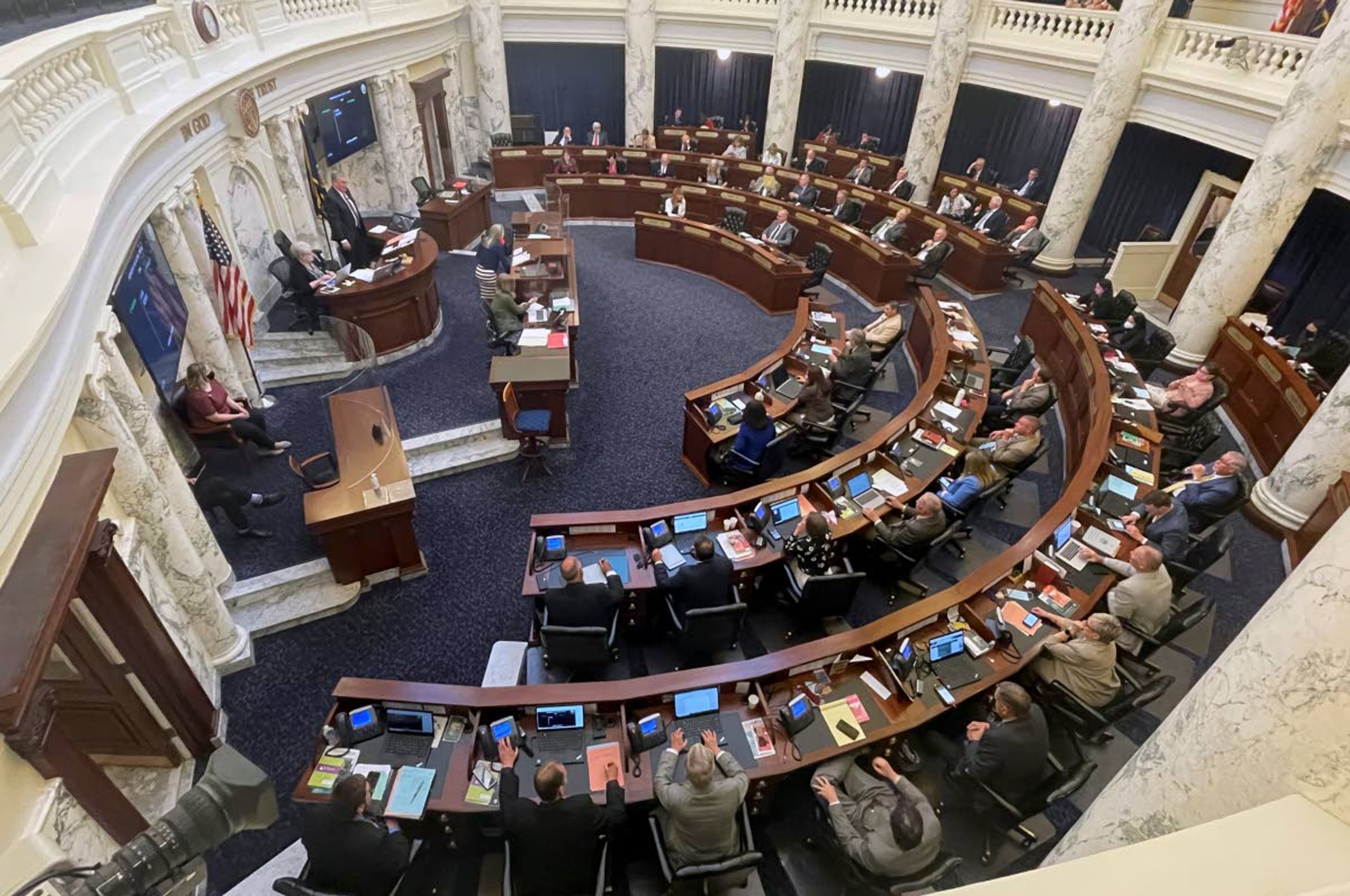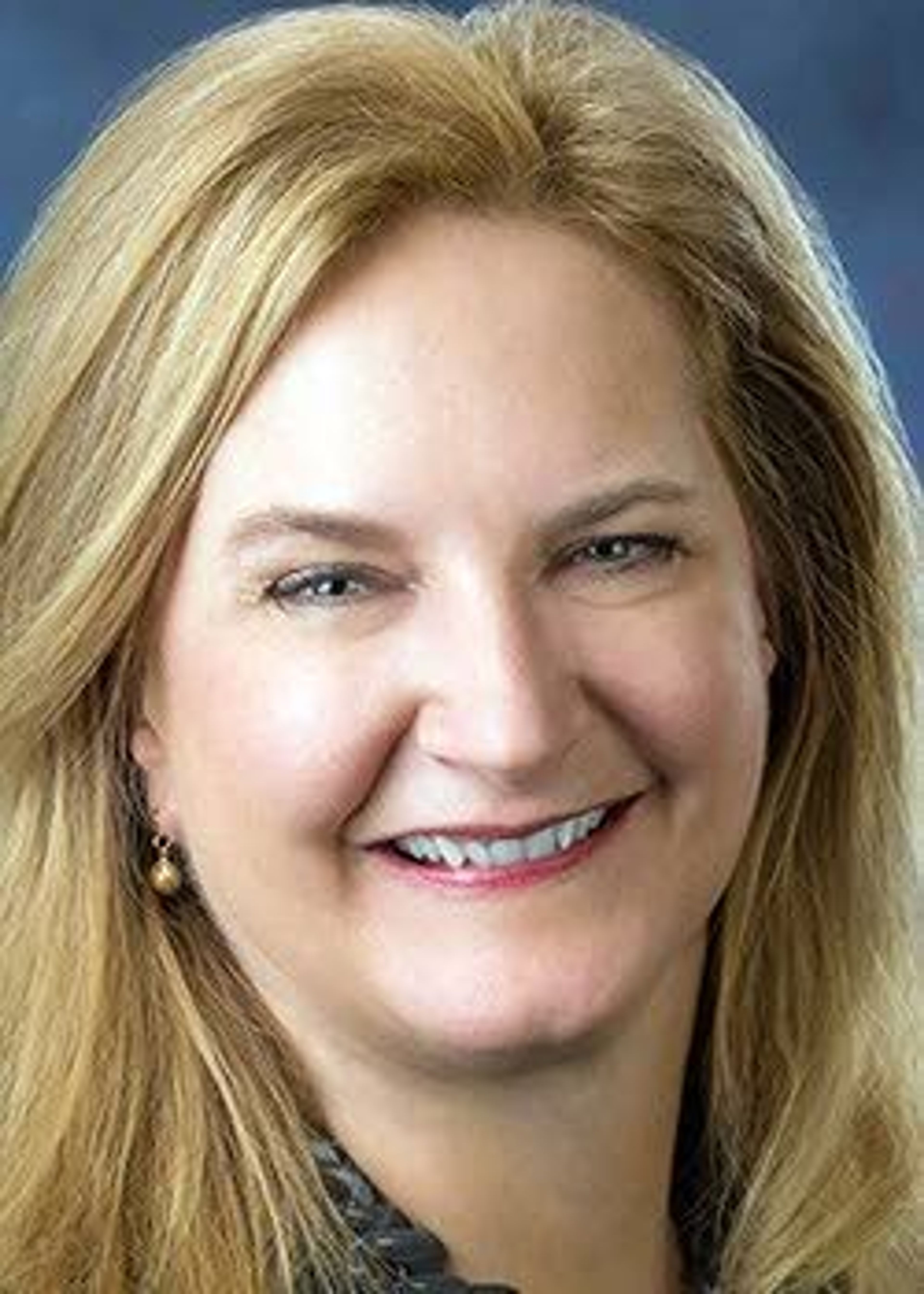Effort on grocery tax repeal fails
Rep. Ron Nate, R-Rexburg, introduced measure that would force vote on issue
BOISE — An effort to force a floor vote on a $256 million grocery tax repeal bill failed 49-20 in the House on Tuesday morning.
The 35-minute debate centered around House Bill 448, which would eliminate the 6% sales tax on food items while leaving the $100-per-person grocery tax credit intact.
Rep. Ron Nate, R-Rexburg, sponsored the legislation. He couldn’t get a hearing in the House Revenue and Taxation Committee, so he introduced it as a personal bill.
Personal bills give lawmakers an opportunity to put their ideas in print, but they rarely go anywhere. They’re typically assigned to the House Ways and Means Committee to die a quiet death.
That’s what happened to HB 448.
However, as provided for in House rules, Nate tried to call the bill out of committee to the House floor Tuesday, so all House members would have a chance to vote on it.
In doing so, he argued that the committee process in the House is “broken.”
By refusing to hold hearings on bills they don’t like, Nate said, committee chairmen essentially wield veto power over legislative ideas. The practice, known as putting a bill “in a drawer,” prevents proposals from moving forward, even when it has broad support.
“If the process is stopped before legislation even gets a bill number, or once it has a bill number it’s not even heard by the public or voted on by representatives, then we’ve stopped functioning as an effective representative democracy,” he said. “I say the process is broken, and it’s time for a little bit of a paradigm shift.”
Rep. Greg Chaney, R-Caldwell, opposed the effort to call HB 448 to the floor. He suggested Nate was simply trying to cut corners, rather than doing the hard work needed to garner support for the measure.
“A personal bill is a courtesy we provide one another to present ideas where we can’t quite get enough support around,” he said. “We should respect that fact and respect the fact that the hard work needed to get an introduction on these bills hasn’t been done.”
Rep. Caroline Troy, R-Genesee, who has successfully introduced dozens of bills, said the current process works just fine.
“I’ve never done anything as a personal bill,” she said. “I’ve been turned down by every single chairman in this body, in the House and Senate, on policy I sincerely believed was good. That just sent me back to the drawing board to get more support and make better policy. I believe our system is a good system, and it allows policy to get better.”
Efforts to eliminate the sales tax on food have been ongoing for years. However, backers of the notion have consistently been out-maneuvered by lawmakers — including the Republican leadership team — who would rather cut Idaho’s individual and corporate income tax rates.
That’s essentially what happened earlier this year. Republican leaders spent months working with Gov. Brad Little to put together a $600 million plan to reduce income taxes. It was the first bill introduced this session, and it sucked up much of the money available for tax cuts of any kind — leaving those who want property tax or sales tax relief scrounging for crumbs.
The House opposed Nate’s attempt to sidestep the committee process and call HB 448 to the floor.
Because of an obscure House rule, a “no” vote was actually a vote in support of calling the bill out of committee.
Reps. Priscilla Giddings, R-White Bird, and Mike Kingsley, R-Lewiston, were among the 20 Republicans and Democrats who voted no. All other north central Idaho representatives sided with the 49 lawmakers who opposed Nate’s move.
Spence may be contacted at bspence@lmtribune.com or (208) 791-9168.











